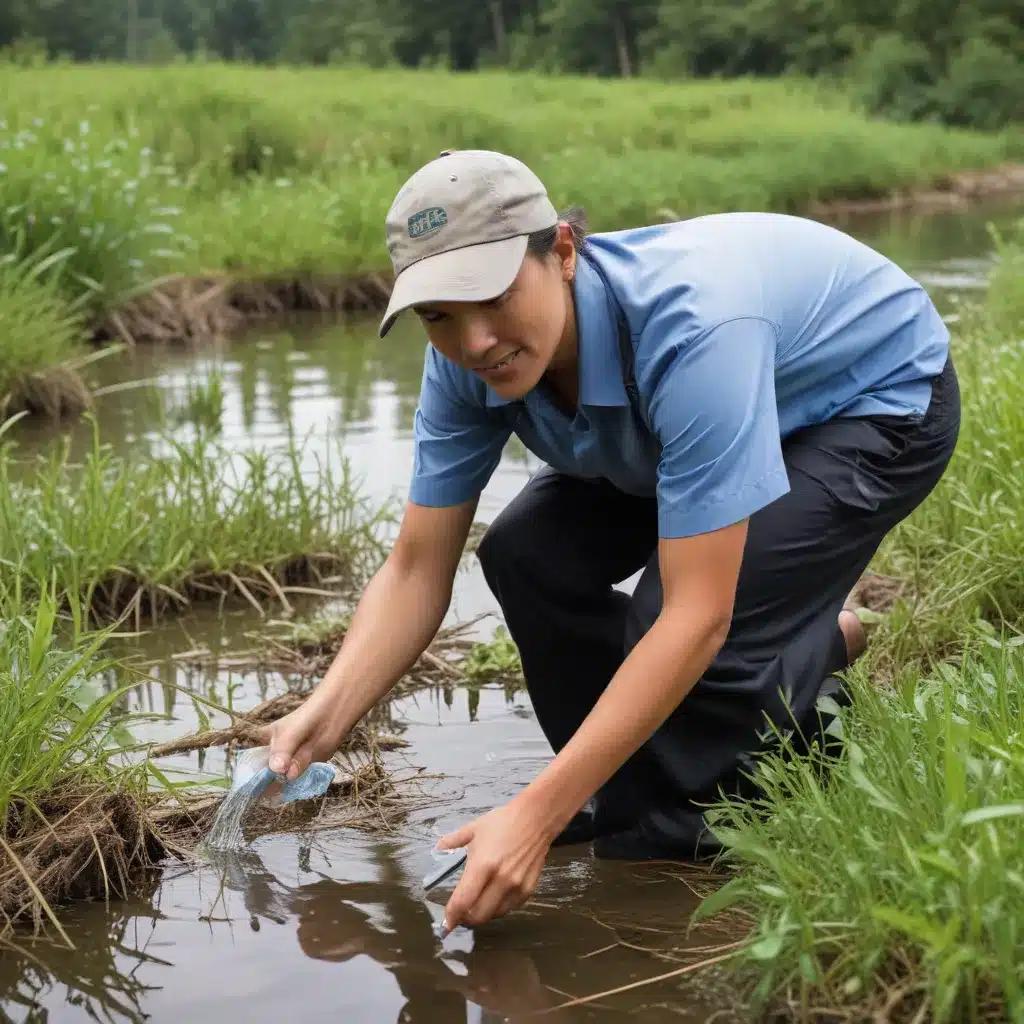
The Power of Community-Driven Data Collection
As the effects of climate change become increasingly evident, the need for robust, localized water resource management has never been more crucial. Traditional top-down approaches to water and sanitation services often fall short in addressing the unique challenges faced by communities on the frontlines of climate impacts. However, a growing movement is empowering citizens to take an active role in monitoring, managing, and advocating for their water resources – a practice known as citizen science.
Citizen science leverages the collective knowledge, expertise, and passion of community members to gather data, identify issues, and drive solutions. By engaging residents as active partners in the process, this approach can foster a deeper understanding of local water challenges and catalyze sustainable, community-driven responses. In the face of climate change, citizen science has emerged as a powerful tool for building resilience and ensuring equitable access to clean, reliable water supplies.
Bridging the Data Gap
One of the primary barriers to effective water resource management is the lack of comprehensive, localized data. Government agencies and research institutions often struggle to maintain robust monitoring networks, particularly in underserved or remote communities. This data gap can hamper decision-making and limit the ability to address emerging threats, such as drought, flooding, or water contamination.
Citizen science programs can help bridge this critical information divide. By training and equipping community members to collect water quality samples, monitor water levels, or track precipitation patterns, these initiatives generate valuable, hyperlocal datasets that can inform policy, guide infrastructure investments, and empower residents to take action. Moreover, the process of data collection itself can foster a greater sense of ownership and stewardship over water resources, building the foundation for long-term, community-driven solutions.
Catalyzing Community Engagement and Advocacy
Beyond data collection, citizen science can also serve as a catalyst for broader community engagement and advocacy. By involving residents in the process of identifying, understanding, and addressing water challenges, these programs can cultivate a deeper sense of environmental awareness and civic participation.
For example, the Anacostia River Watershed Citizen Science Program in Washington, D.C., empowers community members to monitor water quality, map pollution sources, and advocate for policy changes to improve the health of the Anacostia River. This hands-on involvement not only generates valuable data but also inspires participants to become active stewards of their local waterways, collaborating with government agencies and community organizations to drive meaningful change.
Similarly, the Navajo Water Project in the American Southwest has leveraged citizen science to document the lack of access to safe, reliable water supplies on the Navajo Nation. By training residents to collect water samples and map infrastructure gaps, the project has amplified the voices of marginalized communities, informing policy decisions and securing critical investments in water and sanitation services.
Fostering Climate Resilience through Collaborative Solutions
As climate change intensifies the frequency and severity of water-related challenges, the need for innovative, community-driven solutions has never been more urgent. Citizen science programs can play a vital role in enhancing climate resilience by empowering local stakeholders to contribute their knowledge, perspectives, and resources to the problem-solving process.
For instance, the Sonoma County Community Watershed Monitoring Network in California engages residents in monitoring streamflow, water quality, and habitat conditions. The data collected through this citizen science initiative has informed local land-use planning, guided habitat restoration efforts, and helped the community adapt to the impacts of drought and wildfires – crucial steps in building long-term resilience.
Similarly, the Climate Smart Communities program in New York State empowers municipalities to develop and implement localized climate adaptation strategies, with citizen scientists playing a key role in assessing vulnerabilities, monitoring environmental indicators, and evaluating the effectiveness of interventions. By fostering collaboration between government, academia, and community members, this program has helped to ensure that climate resilience efforts are tailored to the unique needs and assets of each local context.
Overcoming Barriers and Scaling Impact
While the potential of citizen science for water resource management and climate resilience is immense, there are several challenges that must be addressed to ensure the long-term success and scalability of these programs.
One critical issue is the need for sustained funding and institutional support. Citizen science initiatives often rely on grant funding or voluntary contributions, making them vulnerable to disruptions and limiting their ability to maintain consistent data collection and community engagement. Integrating citizen science into the core functions of government agencies, research institutions, and non-profit organizations can help to ensure the longevity and impact of these programs.
Additionally, building trust and overcoming historical barriers to community participation is essential. Many marginalized communities have legitimate concerns about the motives and accountability of external actors, particularly when it comes to environmental issues. Citizen science programs must prioritize inclusive, transparent, and equitable approaches that empower residents as true partners in the decision-making process.
Finally, scaling the impact of citizen science will require innovative strategies for data management, analysis, and dissemination. Developing user-friendly platforms, fostering cross-community collaboration, and ensuring that data is accessible and actionable for policymakers and community leaders will be key to leveraging the full potential of these community-driven initiatives.
Conclusion: A Future of Collaborative, Climate-Resilient Water Management
As the threats posed by climate change continue to mount, the role of citizen science in water resource management and community resilience has never been more critical. By empowering residents to take an active role in monitoring, managing, and advocating for their local water resources, these community-driven initiatives can help to bridge data gaps, inform decision-making, and catalyze sustainable, equitable solutions.
Through collaborative partnerships, innovative funding models, and a relentless commitment to inclusive, community-centered approaches, citizen science has the power to transform the way we understand, protect, and manage our most precious natural resource – water. By harnessing the collective knowledge and passion of local stakeholders, we can build a future of climate-resilient, water-secure communities that are prepared to meet the challenges of the 21st century and beyond.

